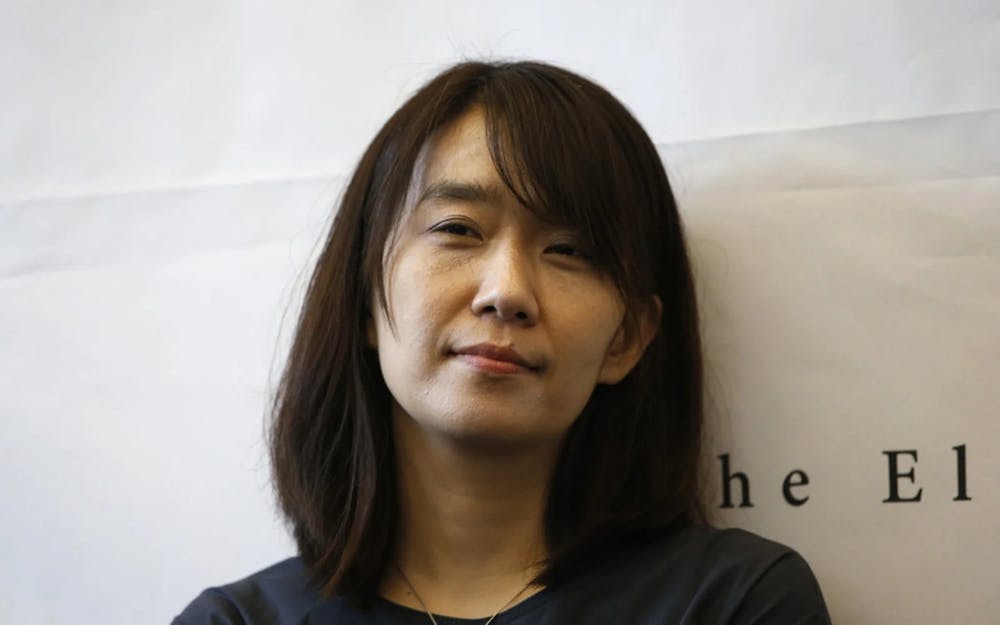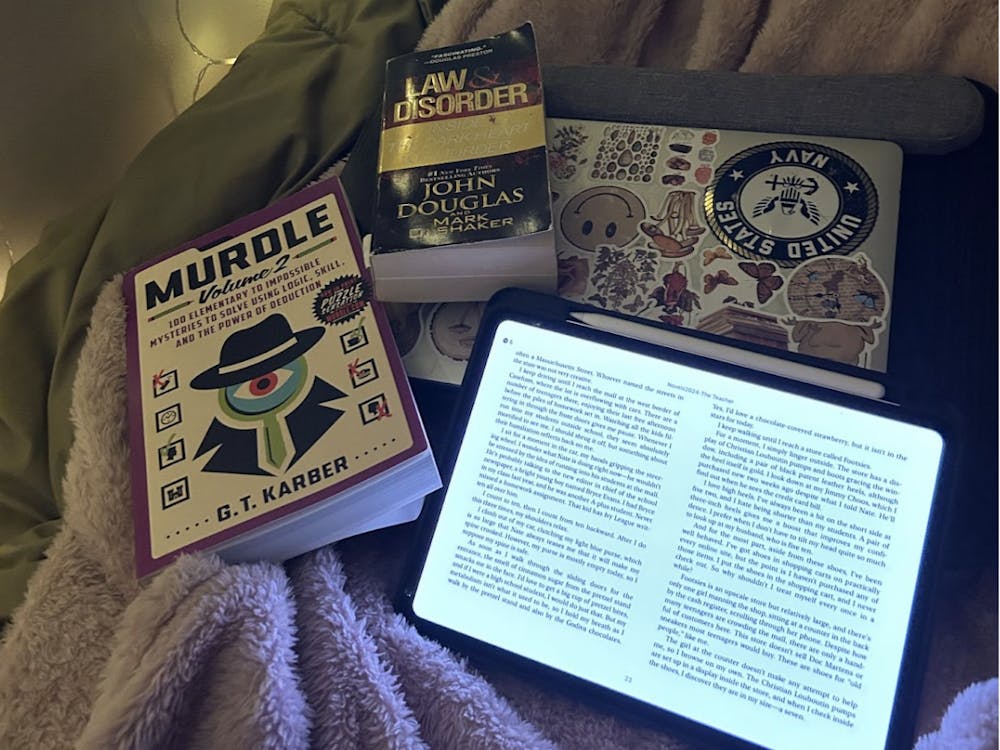South Korean author Han Kang won the 2024 Nobel Prize in Literature on Thursday, Oct. 10 "for her intense poetic prose that confronts historical traumas and exposes the fragility of human life.” She is the first Asian woman to win this award.
There has been only one other Korean Nobel laureate — former South Korean president Kim Dae-jung — who won the 2000 Nobel Peace Prize. Thus, reception in Korea has been immensely positive, with her hometown and alma maters hanging celebratory banners. Her books have been flying off the shelves, and over 930,000 people left congratulatory messages in a portal site’s open chat room within 24 hours of the announcement.
Needless to say, the cause for celebration was unexpected. Although current South Korean President Yoon Suk-yeol had expressed hope, saying “Korea will have Nobel laureates soon,” it was in the context of science and medicine. Unlike previous Korean Nobel laureate hopefuls who were swarmed by the press, Han flew underneath the radar as a candidate despite her impressive list of accomplishments in Korea.
In South Korea, Han’s 2014 novel Human Acts drew national attention due to it being a story about the 1980 Gwangju Uprising, student-led protests against then-President Chun Doo-hwan’s military dictatorship and martial law. Chun responded by deploying hundreds of troops that brutally and indiscriminately killed students and innocent civilians. The government claimed the official death count to be around 200 people, while census data and eyewitness accounts place the count to be around five to ten times higher with over 1,000 deaths.
Perhaps when the Swedish Academy mentions “historical traumas,” they are alluding to how Gwangju-born Han addressed this tragedy by focusing on the aftermath of the protests. She eloquently yet concisely captured the raw, long-lasting devastation that exists in the wake of horrific cruelty.
Han is best known internationally for her 2007 novel The Vegetarian, which chronicles the abuse and oppression a Korean woman suffers from her family after she decides to commit a small act of rebellion: becoming a vegetarian. This book was later joined by the ranks of other Korean novels with feminist undertones such as the 2016 novel Kim Ji-young, Born 1982 by Cho Nam-Joo and If I Had Your Face by Frances Cha, published in 2020.
In interviews, Han has personally emphasized the importance of reaching universal themes of what it means to be human rather than a specific ideological framework:
“I think this novel has some layers, like questioning the possibility or impossibility of rejecting human violence, of obtaining innocence in a perfectionist way, and the difficulty of understanding others, defining madness and sanity, and so on,“ she said in an interview with DW. “While I was writing the novel I felt those were very universal questions. I don't agree with the reception that this novel is a singular indictment against Korean society or patriarchy… I can say there is a layer in the novel of the voice of women screaming silently, yes. But I think if you interpret the novel just as a female voice it could be reducing this book.”
As Han’s original work is in Korean, The Vegetarian has been translated by Deborah Smith. Together, they were the co-winners of the 2016 Man Booker International Prize. It was the first time that the prize was awarded to a novel written in Korean, as well as the first time the prize was awarded to a translator. With the news of Han being awarded the Nobel prize came a new wave of appreciation for Smith, as her translation arguably helped Han’s work reach an international audience.
However, there has been controversy over Smith’s English translations, with critics noting a shift to a more dramatic style, wrongly attributed quotes and arguably mistranslated sentences.
Writing Seminars faculty member Kyeong-Soo Kim – whose field of study is Korean-to-English translation and currently teaches Reading Korean Literature in Translation: A Survey – commented on the difficulties of translating in an interview with The News-Letter.
“When thinking about translation, it’s obviously important to assess the decisions that the translator has made to reflect both the content and the artistry of the original. The question of nuance is a vital one since the basic structures and the cultural associations of the English language and the Korean language work so differently,” she said. “This means among other things that the translator has to intervene more imaginatively, rather than simply translating word for word. The translator needs to think about the nuances of the two languages, and how implications will be differently received.”
In addition, Kim added her own thoughts about the translation in support of Smith.
“When The Vegetarian was first published, some people accused the translator Deborah Smith of intervening too much — of mistranslation,” she added. “My own view is that she has always been faithful to the overall narrative and structure of the originals, and has also treated the language in ways that realized Han Kang's intentions for an English-speaking audience. There is, after all, more than one way to translate the same sentence.”
It must be noted that Han has expressed her support of Smith’s translation, and Smith has translated multiple of Han’s other works after the publication of The Vegetarian including Human Acts.
In an interview with the Booker Prizes, Han spoke more of her collaboration with Smith, admitting to her own actions that impacted the controversy.
“I first came across the English version of The Vegetarian when… I was so absorbed in writing Human Acts... Along the way, I spotted several errors, and exchanged a few emails with Deborah about them. That was the extent of my involvement in the translation of The Vegetarian,” she said. “However, in 2015, when Deborah was working on Human Acts, I wasn’t writing anything else, so I had the peace of mind to engage in a deeper dialogue with her. When Deborah translated The White Book in 2017, she and I compared the manuscript with the original text sentence by sentence.”
Han then went on to describe Smith’s translation of The Vegetarian, which was not quite as collaborative or meticulously evaluated.
“Later, when a heated debate erupted over the translation of The Vegetarian, I wished I had spent as much time reviewing the translation as I had with Human Acts. In fact, perhaps I should have commissioned an expert to compare it sentence by sentence with the original,” she said.
Han’s success lends hope for more recognition of Asian authors in international institutions similar to the Swedish Academy – English is the most common language of Nobel Prize winners with 29 of 121 laureates, with French (16) and German (14) as the second and third most common. Throughout all this, translation is and will continue to be one of the most common tools aiding the search for the recognition of future laureates.





